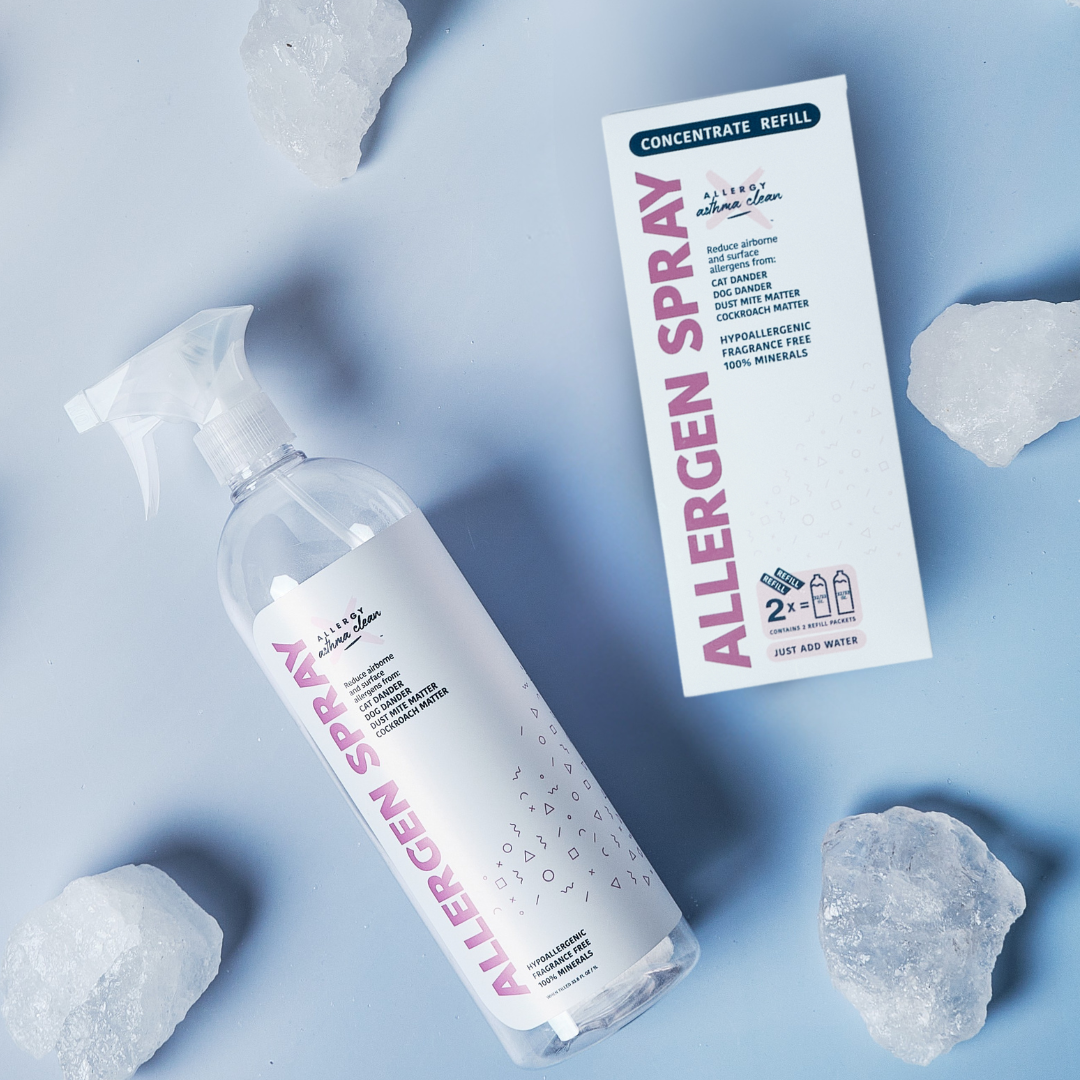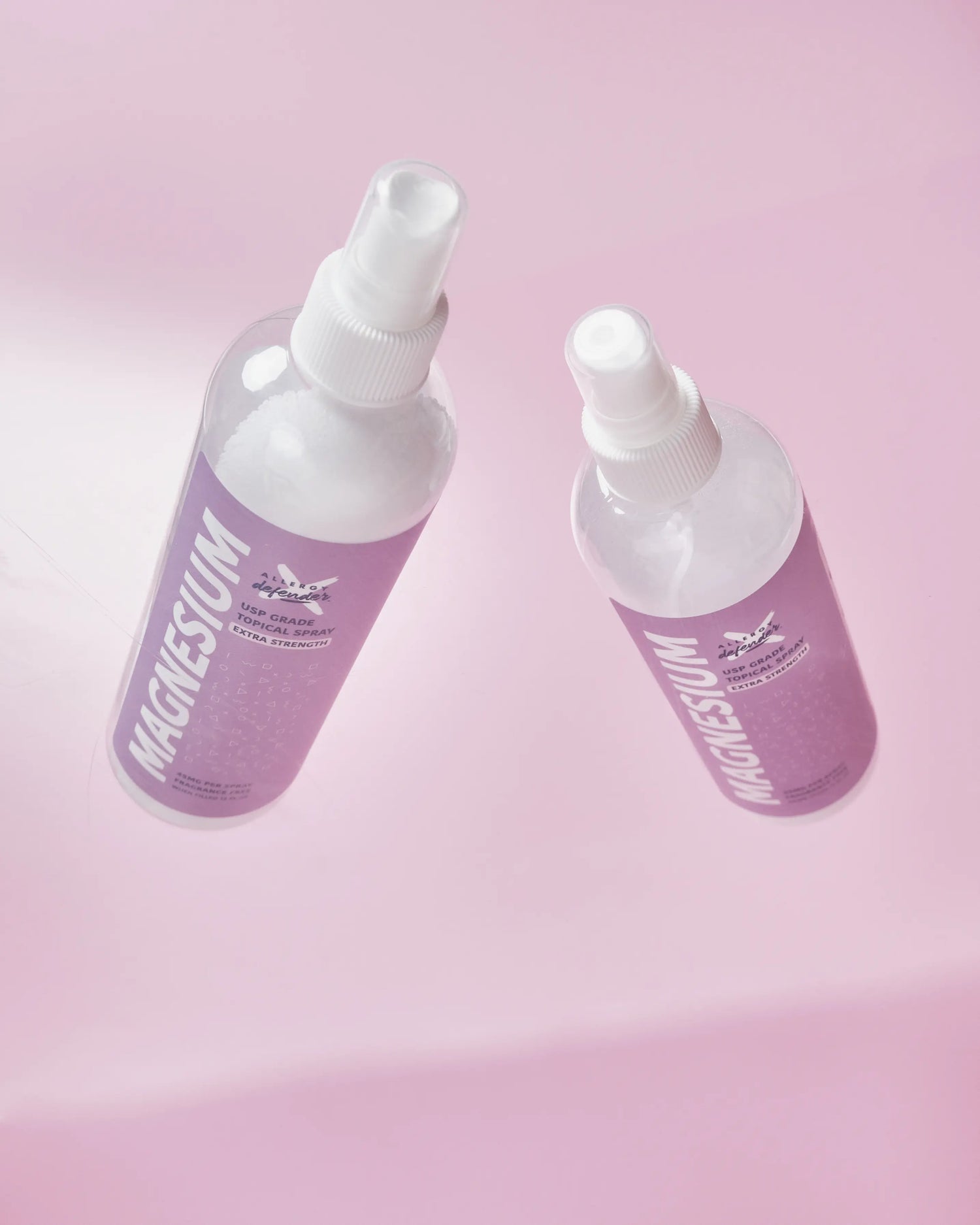Natural Remedies for Allergy Relief: A Guide
Allergies can be a frustrating and uncomfortable experience for many people, and while medication can be effective, it's not always the best option. Medication can have side effects and may not be suitable for everyone. Fortunately, there are natural remedies that can help alleviate allergy symptoms without the use of medication. In this guide, we'll explore some of the most effective natural remedies for allergy relief, including quercetin, supplements, an allergen spray, lifestyle changes, and more.
Our company has extensive experience in dealing with indoor allergies and asthma, dating back to our founder's childhood. Over the years, we have explored various treatment options, including medication, acupuncture, supplements, chiropractors, diet, lifestyle changes, and more. Based on our experience, we firmly believe that natural remedies can serve as an effective alternative for those who wish to avoid medication, but it is always best to consult your doctor before starting or stopping any medication or supplements.
"Allergens are foreign proteins or glycoproteins that are the target of IgE antibody responses in humans. 1"
How the Body Reacts to an Allergen
Allergies are a complex immune response in which the body senses an otherwise harmless substance as a threat. When an allergen is encountered, the immune system responds by releasing histamines and other chemicals into the bloodstream, causing symptoms such as sneezing, wheezing, or hives. These reactions are intended to help eliminate the perceived threat from the body, but they can also cause serious health problems and discomfort for those who suffer from allergies. Ultimately, understanding how allergies work is critical for anyone who wants to live a healthy and comfortable life despite their allergic sensitivities.
Your Mucous Membranes and Allergens
Mucous membranes are found throughout the body, lining various cavities and covering surfaces that come into contact with the external environment. One of their primary functions is to act as a barrier against harmful substances, such as bacteria and viruses. However, mucous membranes can also become irritated or inflamed in response to allergens. When this happens, mucous membranes produce excess mucus in an attempt to flush out the allergen. This can lead to symptoms such as runny nose, watery eyes, and sneezing. In severe cases, mucous membrane inflammation can cause difficulty breathing.
Having a clear understanding of how your body responds to allergens is crucial for effectively managing your allergies.
Supplements and Herbs for Allergy Relief
There are a number of supplements, herbs, and an Allergen Spray that can be effective for allergy relief. Here are some of the most popular ones:
- Probiotics: Probiotics are beneficial bacteria that live in the gut and help support immune function. They've been shown to reduce inflammation in the body and may be useful for reducing allergy symptoms. "The beneficial effects of probiotics on allergies include a reduction in hyperreactivity and inflammation due to the presence of allergens, a decrease in interleukins and eosinophils, and a reduction in TNF and INF, etc. 2"
- Vitamin C: Vitamin C is a powerful antioxidant that helps support immune function. It's also been shown to have anti-inflammatory effects and may be useful for reducing allergy symptoms. "There is evidence that vitamin C acts as a natural antihistamine and antioxidant and that it can help decrease inflammation and swelling at the site of an allergic reaction. 3"
- Stinging Nettle: Stinging nettle is another herb that has been used for centuries to treat allergies. It works by reducing inflammation in the body and blocking the production of histamines. "In another study, 57% of patients rated nettles as effective in relieving allergies, and 48% said that nettles were more effective than allergy medications they had used previously. 4"
- Quercetin supplements: Quercetin works by blocking the release of histamines, which are the chemicals responsible for many allergy symptoms like itching, sneezing, and runny nose. "."Quercetin has a significant inhibitory effect on histamine release. 5"
- D-Hist: A natural dietary supplement that is designed to support respiratory health and help relieve allergy symptoms. It contains a blend of flavonoids, antioxidants, and other natural compounds that work together to reduce inflammation and improve immune function.
- Vitamin D: a crucial nutrient that plays an essential role in maintaining overall health and well-being. In recent years, there has been growing evidence to suggest that vitamin D may also play a role in managing allergies. "Vitamin D has known effects on lung development and the immune system that may be important in the development, severity and course of allergic diseases (asthma, eczema and food allergy). Vitamin D deficiency is prevalent worldwide and may partly explain the increases in asthma and allergic diseases that have occurred over the last 50–60 years. 6"
- Butterbur: a natural supplement that has been traditionally used to manage allergies, particularly hay fever. It contains compounds called petasins, which have been shown to have anti-inflammatory and antihistamine effects. Butterbur works by inhibiting the release of histamines and leukotrienes, which are chemicals released by the body in response to allergens and cause allergy symptoms like sneezing, runny nose, and itchy eyes. "In a human study, people with allergies that were given butterbur tablets for a week showed significant improvement of their allergy symptoms. 7"
- Magnesium oil: typically made up of magnesium chloride and is applied topically to the skin. Magnesium is an essential mineral that plays a vital role in many bodily functions, including muscle and nerve function, regulating blood pressure, and supporting a healthy immune system. "Magnesium also reduces the production of cytokines and cortisol, which lead to increased inflammation and stress.8"
- Allergen Spray: A natural and lab-verified way to reduce airborne and surface allergens from cats, dogs, dust mites, and more. No medication or supplements are required. ." Air testing 95% to 80% Reduction of Major Allergens and Surface Encapsulation 99% Reduction of Major Allergens.9"
Lifestyle Changes
A few simple changes in your home can help reduce allergens, and they don't require much money or taking pills. Here are some easy changes:- Keep your home clean: Regular cleaning can significantly reduce indoor allergens such as dust mites, pet dander, and mold spores. Use a vacuum with a HEPA filter to clean carpets, curtains, and upholstery. Wipe down surfaces with a damp cloth to trap allergens, and consider using an air purifier with a HEPA filter to remove allergens from the air.
- Control humidity levels: Dust mites thrive in humid environments, so it's essential to keep the humidity levels in your home under control. Aim to keep indoor humidity levels between 30% and 50%. You can use a dehumidifier to remove excess moisture from the air or consider using an air conditioner to help regulate humidity levels.
- Reduce exposure to allergens: Limiting your exposure to allergens can also help reduce indoor allergies. For example, if you're allergic to dust mites, consider using allergen-proof covers on your pillows and mattress. If you're allergic to pet dander, try to keep your pets out of your bedroom. It's also a good idea to remove shoes at the door to prevent tracking in outdoor allergens like pollen.
- Allergen Spray: use it throughout your house to help reduce major allergens. Designed to be used in the air and on surfaces like bedding, couches, pillows and after vacuuming.
While medication can be effective for allergy relief, natural remedies can be an alternative for those who prefer to avoid medication. Allergen Sprays, supplements, and lifestyle changes are all effective natural remedies that can help alleviate allergy symptoms and reduce the risk of allergy attacks. As someone who has personally experienced the terrifying effects of asthma and allergies, I am passionate about sharing these natural remedies with others and helping you lead healthier, more comfortable lives.
You need to know: Talk to your doctor before starting or stopping any medication or supplements. If you are unsure which direction is right for you, talk to your allergist or doctor first.
Sources:
1:https://www.ncbi.nlm.nih.gov/pmc/articles/PMC5406225/
2:https://www.ncbi.nlm.nih.gov/pmc/articles/PMC8064452/
3:https://www.entofga.com/can-vitamin-c-help-with-allergies/
4:https://www.mountsinai.org/health-library/herb/stinging-nettle
5:https://www.ncbi.nlm.nih.gov/pmc/articles/PMC6273625/
6:https://www.ncbi.nlm.nih.gov/pmc/articles/PMC4369152/
7: https://www.healthline.com/health/allergies/butterbur-treatment#Research-on-butterbur-in-treating-allergies
8:https://healthmatch.io/anxiety/can-you-take-magnesium-for-anxiety#what-kind-of-magnesium-should-i-take
9:https://allergydefender.com/pages/the-science



